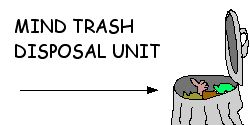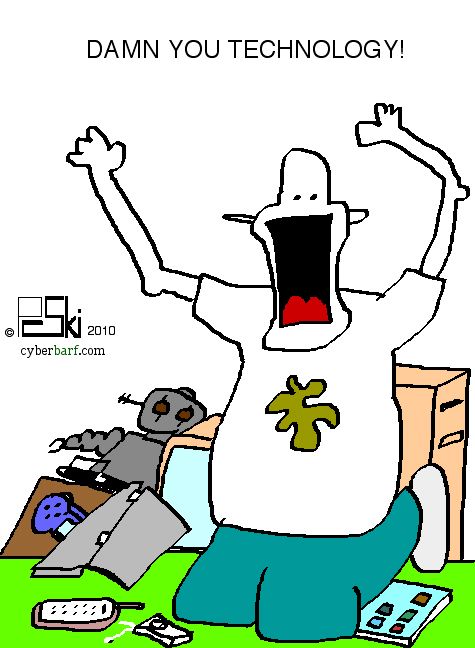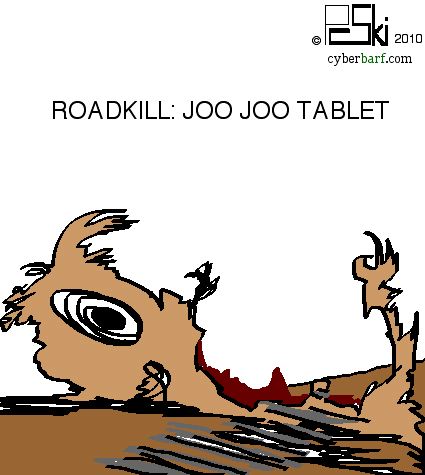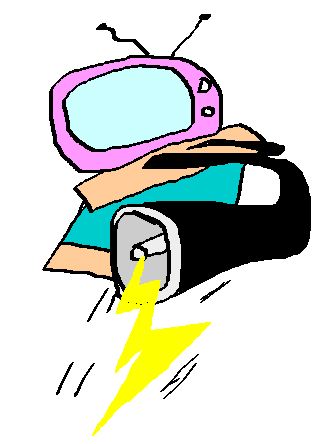|
cyberbarf9.9 EXAMINE THE NET WAY OF LIFE MAY, 2010 IN THIS ISSUE: iTOONS SENSE US ALERT NEW cyberbarf KOMIX WHETHER REPORT MISS INFORMATION LISTMANIA
|

VISIT THE CYBERBARF STORE! |
READ BOOKMARK BUY READ BOOKMARK BUY READ BOOKMARK BUY READ BOOKMARK BUY READ BOOKMARK BUY |
 |
FOLLOW LOST FIND CLUES ANSWER QUESTIONS EXPLORE LOSTHEORY |
|
cyberbarf iTOONS
|
cyberbarf
EXAMINE THE NET WAY OF LIFE
cyberbarf
EXAMINE THE NET WAY OF LIFE
|
cyberbarf SENSE US STATUS ALERT When Steven Colbert pokes fun at us and winds up as the man of reason, we are in trouble. During a recent bit about the U.S. census, Colbert made fun of the current twenty-something hipsters, who have a low census form return rate of about 36 percent. News clips of interviews showed a certain lack of understanding what the census is all about. Youth in America had no real concept of what counting the citizens had to do with their lives. It did not matter. It seemed nonsensical. It did not matter. One said he would not think about filling out a form unless he was paid, like five dollars to do it. All laughter aside, if this is truly the state of disconnect in the nation, we are in trouble. For the census is a basic constitutional mandate. Its purpose is to count ever ten years the census of the citizens in order to determine the representative districts in Congress. And it is important to get an accurate count, because governments data mine the numbers in order to dole out federal tax dollars. The ramifications of undercounting a state total could be the loss of a representative in Congress, and the associated influence over new laws and spending. But this basic social studies answer appears to allude the younger generation. It also alludes the people in charge of the census. The constitution was merely a head count. But it has now warped into a detailed survey (under the penalty of criminal charges) of who you are, what you make in income, what is your ethnic background and sub-genres (even though the census is to count American citizens only). The only reason for any additional information on a census form is to gather data to be used by the government to either formulate targeted assurances or to retain power by gerrymandering Congressional districts. To gerrymand means to carve up territory and manipulate the data to gain an advantage for one political party or group over another. It is a divide and conquer concept from ancient times. Further manipulation comes from past census efforts where the powers that be wanted to use “survey techniques” and “estimates” instead of real counts, like pollsters do for their clients by using a small 5,000 person sample to predict what 300 million people think. Since the founding of the United States, the census was done by hand. At Ellis Island, immigration was done by manual input until a clerk devised a way to sort the cards more efficiently into boxes (the dawn of computerized data collection.) Today, with the internet access available to just about anyone who wants to log in, one would think that modern technology would make the census easier than past decades. But the federal government does not think so, as it hired 88,000 temporary workers and budgeted more than $18.5 billion dollars just to find out how many citizens there are in the states. It seems like a drop in the bucket in comparison with the trillion dollar deficits generated in Washington, D.C., but it seems like another inefficient federal boondoggle. After the past several census counts, many states and local governments had to go out and spend their own tax dollars to do a more accurate count of their local citizens. The reason was simple: the official data was used for all government revenue sharing, and each counted citizen equates to cash for a cash-starved unit of government. And maybe the system's inefficiencies and lack of common sense has numbed today's youth into not caring what the census is all about to them. But, even a blind man should open his eyes when his entrusted seeing-eye dog is leading him off a cliff.
|
|
THE PINDERMEDIA STORE IS FULL OF FUN TEE-SHIRTS AND SELECTIONS. FUN . . . . VALUE . . .. FUN . . . . VALUE!
SUPPORT cyberbarf |
|
|
|
cyberbarf THE WHETHER REPORT |
cyberbarf STATUS |
| Question: Whether schools will buy iPads and use them as e-readers instead of buying textbooks? |
* Educated Guess * Possible * Probable * Beyond a Reasonable Doubt * Doubtful * Vapor Dream |
| Question: Whether the FCC's recent loss in federal court over the issue of net neutrality will stop the government from attempting to regulate cable and the Internet? |
* Educated Guess * Possible * Probable * Beyond a Reasonable Doubt * Doubtful * Vapor Dream |
| Question: Whether the surge in new tablet devices with wi-fi or 3G connections create more data bandwidth problems? |
* Educated Guess * Possible * Probable * Beyond a Reasonable Doubt * Doubtful * Vapor Dream |

|
cyberbarf MISS INFORMATION VERIFICATION “Memory is more indelible than ink.” - - - Anita Loos. In the 1960s and 1970s, families used to compile libraries for their children's education. Local grocery stores used to have premiums for shopping, including buying discount volumes of encyclopedias like World Book. Knowledge was the key to success, and a chance to get a higher decree in college. Families that could afford the expense of a major set of text, like the Encyclopedia Britannica, believed that the expensive series of books was an investment in their own children. Each item contained in the Britannica was written by an expert, whether it was a one paragraph definition or a full page in depth article on a subject. People could rely upon the information contained in those encyclopedias as it was from authoritative sources. School libraries housed sets of encyclopedias, as well as stacks and stacks of individual subject matter textbooks. The reference desk was the center of the research world for a student. Students were required to research papers in the library, and cite all of their information in their reports by author, book title, page and publisher (bibliographic tables or footnotes.) Now, less than two generations later, family living rooms are not shelved with sets of reference books but with video game and movie DVD cases. The convenience of the Internet has caused the investment in knowledge to be diluted by the distractions of modern electronics. Educators have been complaining for years about the weak elements of home work reports from students. Students have become addicted to taking home work assignments for granted, relying totally on a Google search and the cut and paste function of their PC to print out a report in minutes instead of the old school way of researching library cards, reading text books and encyclopedia references, copying the materials in notebooks, then either writing long hand on lined college-ruled paper or typing a report on a typewriter. Yes, technology has given students the tools to ease the production aspects of creating a report. But it also has created a laziness in gathering the information being put into the report. Part of the reason for home work is for students to read, learn and apply book knowledge on their own, outside the class room. The more people read words, the more apt they are to retain the knowledge coming from the texts. It is part of the overall training of students for get used to real life experience in the business world. The other problem is that the information being distributed on the Internet search engines is not primary source materials. The search results cut and pasted from wikipedia or subject linked web pages is not necessarily authoritative, i.e. written by an expert on the topic. A scientist who has studied a subject for an entire career has more experience and knowledge to trust than an amateur hobbyist or non-academic who thinks they know the answer to the question. But the Internet does not credential the authors of the web pages. Even those who champion the Internet as the virtual library for the entire planet admit that at best, half of the information contained is reliable which means the other half is best described as misinformation. Distracted students are not discerning enough to question the difference between reliable authoritative information and misinformation. It looks the same, or better, it serves the same purpose: filling a home work page as quick as possible to get back to video games, television, surfing social network sites or texting friends. The larger problem is that students today will hold the knowledge and memories of our collective pasts. If knowledge is not treated like a valuable asset, it will be diluted to the lowest common denominator so that the national I.Q. will fall. Intelligence is the human capital which keeps civilization moving forward. Application of knowledge is the engine that fuels innovation and economic growth. Some educators fear that those core lessons are being lost with the rise of technology savvy student. |
 |
 |
|
cyberbarf LISTAMANIA BARF-O-RAMA What are some of the staff's current top cable channels?
|
 |
 |
 |
THE STEAM PUNK SPECIAL EDITION featured new Music from Chicago Ski & the (audio) Real News:
(mp3/4:14 length)






